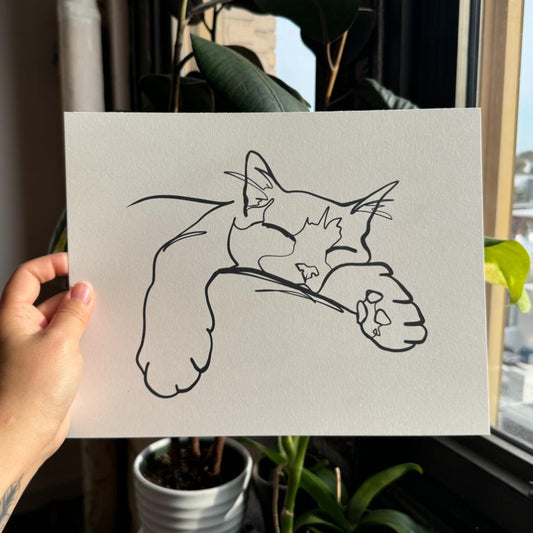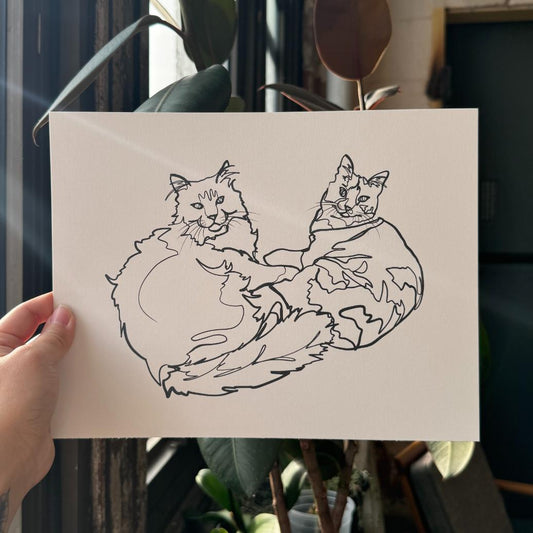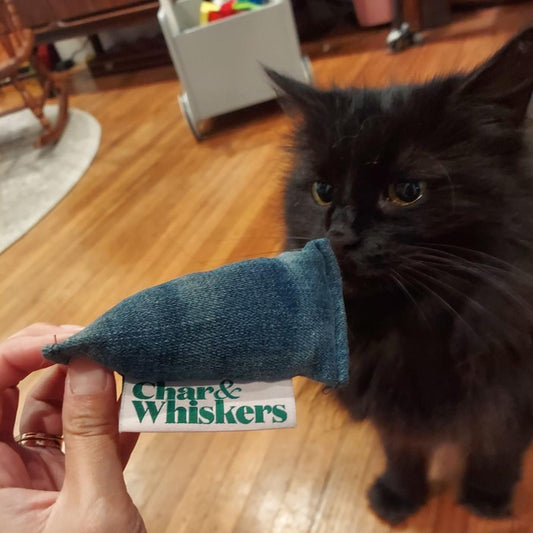
Why Does My Dog Keep Sneezing? The Curious Case of Doggy Sneezes
Celeste ZosimoIs your doggo letting out a cacophony of sneezes? While a sneeze or two is normal, too much sneezing can be something you need to look into. Let's take a closer look at why your dog keeps sneezing and the solutions to get them breathing easily again.
These are the Normal Sneezes

Not many of us are aware of it, but dogs experience physiological sneezing. This is a natural part of their respiratory system. When our furry friends sneeze, it is more often a reflex action triggered by their nasal passages. It aims to clear their noses of any irritants or foreign particles.
Furthermore, they sneeze to eliminate dust, pollen, or tiny particles that have somehow made their way up those cute noses. Think of their boop button as a filter that responds with a sneeze when it detects something that shouldn't be there. This is how it gets rid of the assailing object. Next time you notice your pup letting out an achoo, rest assured it's just their way of keeping their snoot in tip-top shape.
Here are the Common Triggers

Your dog's excessive sneezing may come from the following triggers:
Allergies: Just like us, dogs can suffer from allergies, too. Below are a few allergens that can cause excessive sneezing:
- Pollen: Your furbaby may be allergic to pollen from flowers, trees, or grasses. Pollen can irritate their nasal passages when they inhale them. This results in sneezing a few times too much.
- Dust mites: These are the tiny creatures that you find in bedding, upholstery, and carpets. When your doggy gets exposed to these, they might sneeze uncontrollably, especially when allergic to dust mites.
- Certain foods: Your dog may be allergic to specific foods or ingredients. Too much sneezing can be a sign of a food allergy. While it is less common than itching or intestinal issues, you may want to have it checked.
Environmental Factors: Dogs have the ability to adjust to their surroundings. Changes in the environment can affect their nasal passages. These are:
- Weather changes: sudden shifts in the weather, such as cold or dry air, can cause your doggos to sneeze. They may also react to changes in humidity levels.
- Strong scents: It is common knowledge that dogs have a super-strong sense of smell. They may let out a symphony of excessive sneezing if they sniff intense odors from perfumes, cleaning products, or certain plants
- Indoor pollutants: Smoke, dust, or other indoor pollutants can irritate your furbaby's nasal lining, which can lead to sneezing.
These are the Unusual Culprits

Below is a list of some of the unusual culprits behind dog sneezing:
Reverse Sneezing: Scientifically known as the pharyngeal gag reflex, reverse sneezing is a strange phenomenon observed in dogs. This happens when your dog inhales sharply and rapidly through their sniffer. It often sounds like a combination of coughing, snorting, and choking. Your pup's neck may extend, and you'll see them standing still or moving backward.
It is usually triggered by irritated or inflamed nasal passages or throats. Allergens, anxiety or excitement, and drinking and eating are the common causes of this. This is generally harmless, but it's best to check with your vet for frequent or prolonged episodes.
Foreign Objects: Occasionally, our dogs can sniff or accidentally inhale tiny foreign objects that can irritate their nasal passages. Sneezing fits from these can be from dust, sand, dirt, grass seeds, or plant materials. If the sneezing becomes persistent, or if you see signs of discomfort in your furbaby, go to your vet immediately.
Dental Issues: While not directly, dental problems can affect your dog's nasal passages and can cause excessive sneezing. Infected teeth, oral abscesses, or gum disease can lead to inflammation extending to their sinuses. Check for bad breath or behavior changes, and provide them with regular dental care.
This is When to Worry

Here are the most crucial signs that your doggo's excessive sneezing warrants a vet visit:
Chronic sneezing: This could indicate an underlying condition such as allergies, infections, or nasal problems. Consult your vet to assess the cause and provide the appropriate treatment.
Bloody discharge: If you see blood coming from your dog's nose, seek professional help promptly. This could be signs of issues such as nasal injuries, infections, or tumors.
Here are the Treatments and Prevention

If your dog's sneezing seems to go out of hand, here are a few essential treatment and prevention strategies you can do:
Veterinary Consultation
Your dog's health comes first, so it's always best to get a veterinarian's expertise if you notice something out of the ordinary. Chronic sneezing could be a sign of an underlying medical issue, and only a vet can perform a thorough examination and recommend appropriate treatment.
Avoiding Triggers
Allergens have a significant role in sneezing episodes. To prevent this from happening, minimize your dog's exposure. Below are a few tips to follow:
Regular cleaning: Keep your furry companion's living quarters clean. Vacuum regularly to help prevent dust and other allergens from getting to their snouts.
Limit the use of aerosols: Avoid using strong room diffusers or sprays that can irritate your dog's respiratory system. This includes essential oil diffusers.
Food allergies: Try different food types to rule out your dog's allergies.
Maintain Dental Health
Dental concerns can contribute to their sneezing. This is because a dog's upper teeth are close to the sinuses and nasal passages. If they suffer from dental infections or abscesses, these will be inflamed and lead to sneezing. Ensure your dogs get regular dental care, including professional cleanings and brushing their teeth.
Always remember that early intervention and proper care can enhance your pup's well-being. If in doubt, consult your vet. A happy and healthy dog without excessive sneezing is worth every effort.




